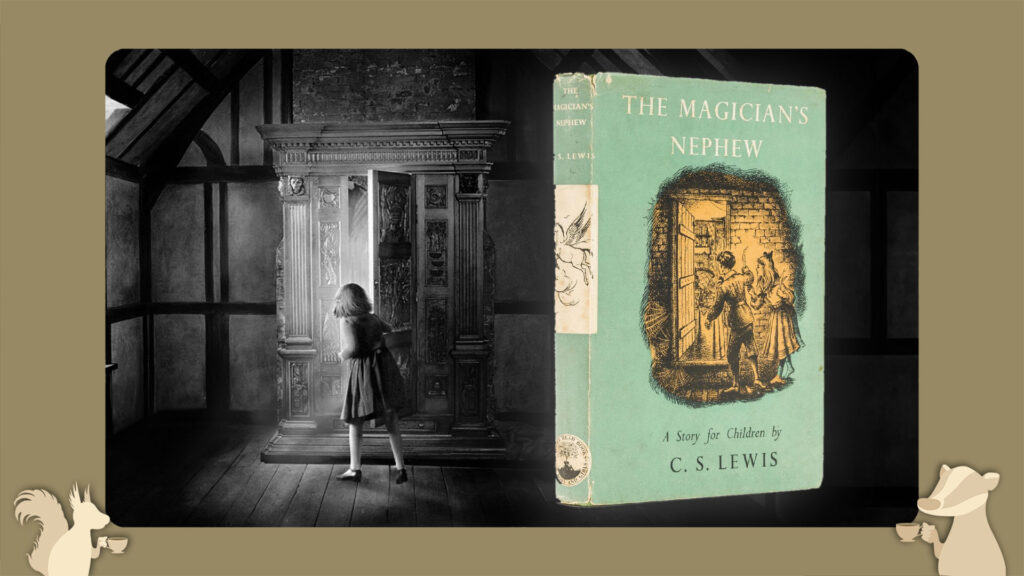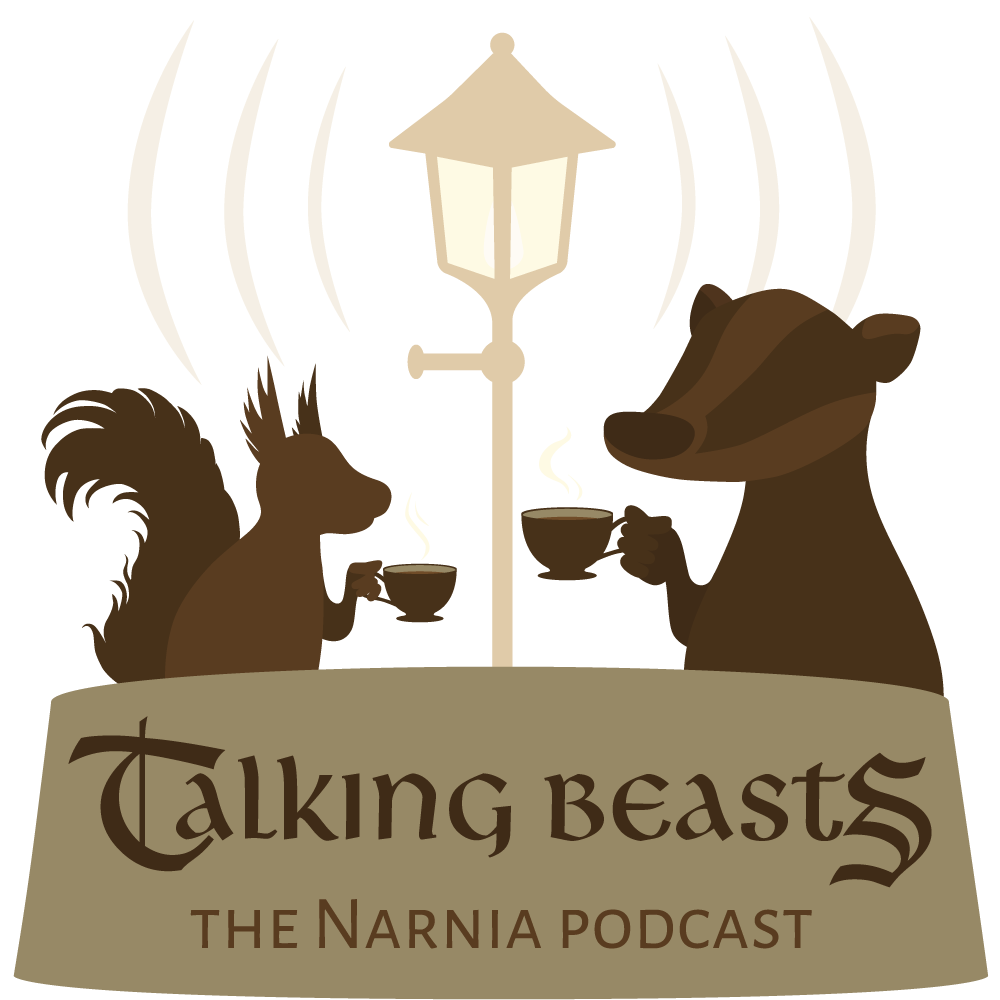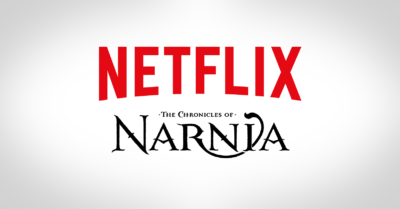C.S. Lewis Almost Ruined the Magic Wardrobe | Talking Beasts

Podcast: Play in new window | Embed
Five years after publishing The Lion the Witch and the Wardrobe, C.S. Lewis released a prequel story that detailed the origin of the magic wardrobe. Was this a mistake? Did it ruin the mystery? Listen to the podcasters discuss the final chapter of The Magician’s Nephew.
He couldn’t bear to have it simply chopped up for firewood, so he had part of the timber made into a wardrobe, which he put in his big house in the country. And though he himself did not discover the magic properties of that wardrobe, someone else did.
The Magician’s Nephew Movie
In Part 2 of this discussion, the podcasters discuss how Netflix might handle the wardrobe reveal slightly differently if they begin their series with The Magician’s Nephew.







Great discussion on The Magician’s Nephew over the last couple of years! I’ll look forward to hear discussion on The Last Battle later on.
It’s amazing how CS Lewis wrote a prequel Narnia story even before prequels or origin stories became popular in the Hollywood Industry (like Star Wars Prequel Trilogy, The Dark Knight Trilogy, OZ: The Great and Powerful and there’s a movie adaption of the Broadway musical Wicked coming out this Christmas, Wonkda).
I’ve actually thought of Netflix doing LWW first but instead of doing PC next, they do HHB and MN. We get a glimpse of the Pevensie’s reign in HHB. In MN, Professor Digory Kirke could possibly tell the Pevensies of his own adventure in flashback form. Then audiences would be like, “So that’s where the wardrobe came from!”
Keep up the great work!
Talking Beasts is BACK! Great talk and podcast today. Great season in fact. Really enjoyed listening to you discuss The Magician’s Nephew. Sad that it’s over, but I look forward to your future take on The Last Battle!
Also: Interesting take, Rilian, but I had always thought that the reason the Tsar Bomba was only 50 megatons [instead of 100] was MOSTLY because they did not want to kill the pilot who was going to drop it, and they concluded that a 50 megaton bomb was just small enough for him to be able escape the blast enormous radius in time.
Thought I’d share to that chilling bit of history.
If anyone is wondering why it took me so long to comment on this episode, I was on a trip over the weekend and then when I got back, I wrote a comment that got lost.
When I heard Rilian’s windchimes, I thought his kids had broken a whole set of dishes. LOL. 🙂
In the BBC radio adaptation of The Magician’s Nephew (not the Focus on the Family one), they have Digory’s mother tell him his great-uncle has died like it’s the best news ever and Digory is like, “yay!” It makes them sound so hilariously callous that you appreciate why C. S. Lewis dramatized it the way he did.
I love what this episode said about how C. S. Lewis structures the book so that the reveal of the wardrobe at the end is fun and not pandering. Of course, when we say that, we’re coming to it from an adult’s perspective. I don’t think young readers would worry about ruining the mystery or anything like that. (Interestingly, in another book, The Great Divorce, Lewis criticizes a character for reveling in mystery and ambiguity too much and says he needs to return to thinking like a child. “There was a time when you asked questions because you wanted answers and were glad when you had found them.”)
I never thought the gate from The Silver Chair was innately magical. I got the impression Aslan just used it for his purposes. In fact, I’m not even convinced the painting in The Voyage of the Dawn Treader was magical though I won’t put my neck on the line for that claim since it’d be quite a coincidence for a painting of a ship that looks exactly like the Dawn Treader to just happen to exist in our world.
I think they might keep the simple transition from Narnia back to the Wood Between the Worlds in a movie just because it’s cheaper. Even if they do make it flashier than in the book, I hope they keep it so that Aslan is the one transporting the characters, not the rings because in the book, whenever anyone uses the rings, something bad happens which leads up to Aslan commanding Digory and Polly to bury them. Keeping that dynamic is what’s important to me.
Aslan’s warning really does sound like C. S. Lewis is alluding to the atomic bomb or nuclear weapons in general, especially since it also alludes to real world leaders. (“And soon, very soon, before you are an old man and an old woman, great nations in your world will be ruled by tyrants who care no more for joy and justice and mercy than the Empress Jadis.”) In fact, it sounds so much like that that I can’t help but wonder if it’s actually talking about something else. I haven’t read The Abolition of Man, but I’ve read C. S. Lewis in Context by Doris T. Myers, and she mentions that in that work, Lewis cited the airplane, the radio and contraceptives as examples of man gaining too much power. (Those probably sound really silly, but Myers makes a defense of his choices, and her book is well worth a read.)
I’m delighted to hear that this read has convinced Glumpuddle of The Magician’s Nephew’s thematic coherence! I also love the description of Aslan’s “golden goodness”, but I’ve never thought of it as being about sehnsucht or the longing for joy. I’d describe it as being about faith or hope or something like that. Your mileage may vary. I agree that there’s no way a movie adaptation could capture the moment and they shouldn’t bother trying to do so.
Isn’t it possible they had drugs in Charn? Shakespeare used the words, so it’s not that modern. After all, it’s not like the people of Charn don’t speak English.
I apologize for bringing up something controversial since I feel like people do that just to be obnoxious, but I really do think it’s related to this. C. S. Lewis went on record as saying that the husband should have authority over the wife, so it makes sense that he didn’t have Digory marry Polly, but he did have Shasta marry Aravis. Polly is obviously Digory’s moral superior so from C. S. Lewis’s perspective, he wouldn’t be an appropriate husband for her. (I balk at saying that Shasta is Aravis’s moral superior but maybe he is? I mean, we never hear that Shasta has anyone whipped though I’m sure he would have done so if he’d been born with that power.)
I love the discussion about the last lines in the Narnia books! I’ve always interpreted the one from The Magician’s Nephew along the same lines as Glumpuddle does. It’s interesting that the only Narnia that don’t end on humorous or ironic lines are The Lion, the Witch and the Wardrobe, The Horse and his Boy and The Last Battle. Even with LWW and HHB though, while the last line of the books aren’t funny, the last lines of dialogue are. (“Bless me, what do they teach them at these schools?” “If you say another word about it, I’ll-I’ll knock you down.”)
Anyway, this has been a great season of Talking Beasts and a great discussion of a great book. I’d like to thank the podcasters for all their work.
Thanks for another great season. This podcast is so much fun to listen (and re-listen) to!